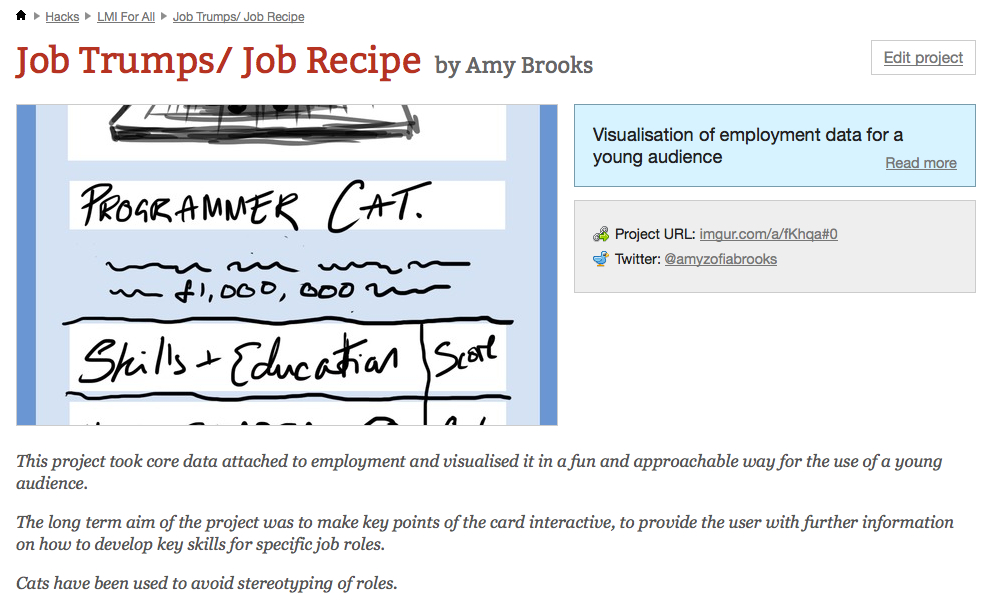As promised, a post on our stand and presentation at Alt-C on the LMIforAll Labour Market Data project, sponsored by UKCES. Working together with the Institute for Employment Research at Warwick University and Raycom, we have developed a database and APi providing access to a range of data about a wide variety of different occupations in the UK including data about:
- Pay
- Gender
- Numbers employed
- Future employment projections
- Occupational profiles
- Skills and competences
- Job vacancies
- University destinations
The API is self documenting and is available free of charge to both for profit and not for profit organisatio0ns and developers. Working with Loud Source we have run a competition for Apps built on the API and together with Rewired State we have organised a series of Hack Days and Mod Days. We are currently redesigning the website to provide better access to the data and to the different applications that have been built to date.
One strange thing that took people visiting our stand some time to understand was that we were not selling anything (I think ours and Jisc were the only non commercial stands). The second thing was that we were not trying to ‘sell’ them a shiny out of teh box project. To get added value from our database and API requires some thought and development effort on the part of organisations wanting to use the data. We provide the tools, they provide the effort to use them. But when people got that concept they were enthusiastic. And most interestingly they were coming up with completely new ideas for where the data might be valuable. As you can see in our presentation above, we have largely focused on the use of LMIforAll for careers planning. University and Further Education researchers and developers saw big potential using the API as a planning too for future courses and curriculum. Others saw it as a valuable resource for measuring employability, a big agenda point for many UK institutions. It was also suggested to us that the labour market data could be mashed together with data derived from learning analytics, providing possibly a more learner centred approach to analytics than has previously been deployed.
If you are interested in any of these ideas have a play on the LMIforAll web site. And feel free to get in touch if you have any questions.

